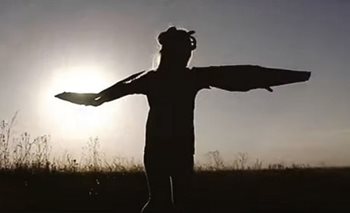On September 29, 2020, Canada's Heritage Minister Steven Guilbeault tabled a new bill proposing that Orange Shirt Day become a national statutory holiday and officially be named the "National Day for Truth and Reconciliation.”
On May 28, 2021, the day after 215 children's bodies were discovered in an unmarked cemetery on the grounds of the former Kamloops Indian Residential School, the bill passed in the House of Commons by unanimous consent.

For the Canadian Red Cross, acknowledging the new national holiday is more than a commitment to reconciliation, it is an opportunity for all of us to deepen our understanding of the events and experiences that contribute towards disparities in the lives of Indigenous Peoples and deepen our understanding of Indigenous cultural strength.
The work of the Canadian Red Cross is to help people in times of need and support them in strengthening their resilience. One of our roles is to better understand the history of harm that has created “structural vulnerability.” This structural vulnerability in Indigenous communities is the result of historical and ongoing harm and violence. Many Indigenous people, families, and communities have experienced - and continue to experience - too many traumatic events.
In communication with Tom Jackson, a long-standing champion of the Canadian Red Cross, and humanitarian, he expressed:
Tom Jackson asked me to share his song “Lost Souls” with you:“In the world of Truth and Reconciliation, we will not find reconciliation until we find truth. The truth may be painful, but pain is part of the process of the sacred healing journey. Although the work is difficult, it will directly contribute to the health and well-being of the present and future generations. Sometimes I pray for change, and it helps me get through the darkness. But I’m not sure if just my hope helps others.”
{^youtubevideo|(width)560|(height)340|(rel)True|(autoplay)False|(fs)True|(url)https://www.youtube.com/watch?v=C9gOBtGfvaE^}
Please find below some of the many resources to deepen your learning on this important day.
| Movies, Documentary, TV | Reports |
| Smoke Signal | In Plain Sight |
| Reel Injury | Reclaiming Power and Place |
| Mohawk Girls | They Came for the Children |
| Blood Quantum | Truth and Reconciliation Commission Reports |
| Indian Horse | |
| Reservation Dogs | |
| We Will Stand Up |
| Graphic Novel and Books |
| From the Ashes - Jesse Thistle |
| 21 Things you may not know about the Indian Act - Bob Joseph |
| The Inconvenient Indian - Thomas King |
| This Place, 150 Years Retold - Kateri Akiwenzie-Damm |
| Monkey Beach - Eden Robinson |
| Indian Horse - Richard Wagamese |
| The Reconciliation Manifesto: Recovering the Land, Rebuilding the Economy - Arthur Manuel and Grand Chief Ronald Derrickson |
| The Marrow Thieves - Cherie Dimaline |
| Podcasts |
| Unreserved (CBC Podcast) |
| Metis in Space (Indian and Cowboy) |
| The Red Nation Podcast (LibSyn) |
| Missing & Murdered (CBC Podcast) |
| The Secret Life of Canada (CBC Podcast) |
| This Land (Crooked Media) |
| All My Relations (Independent) |

